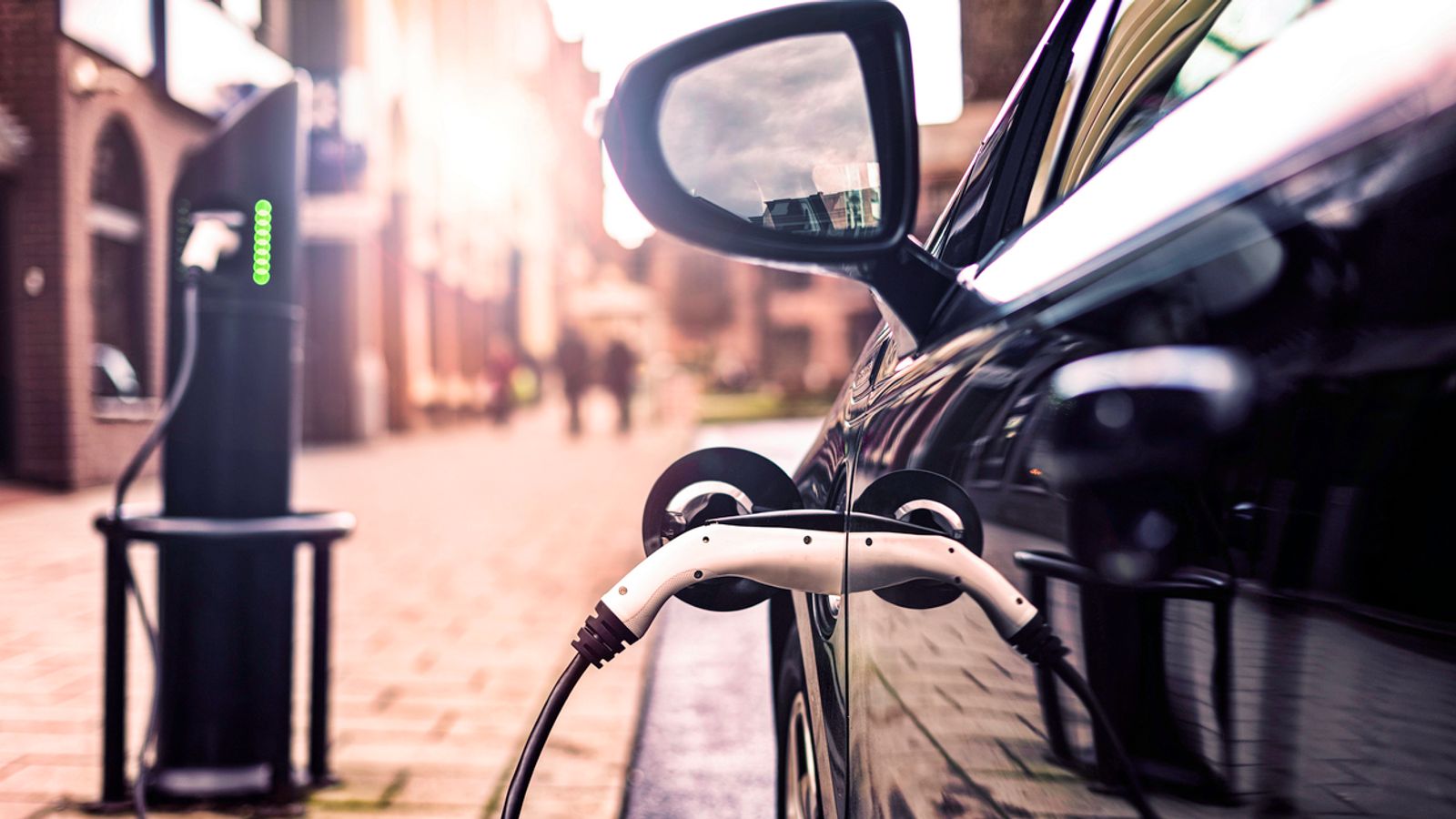New electric car interest drops two thirds on UK’s biggest car sales website

Interest in new electric vehicles may be declining, data from the UK’s largest car sales website suggests.
The volume of new electric car searches, ad views and messages to retailers on the Auto Trader platform was down nearly two thirds (65%) from the beginning of last year to March this year.
Auto Trader has attributed this to the high cost of electric cars, higher borrowing rates and more expensive electricity, all amid a cost of living crisis.
The company called on the government to introduce tax incentives to improve affordability.
In January 2022, electric vehicles (EVs) made up 16.3% of new car ad views on the website but by March 2023 it had fallen to 10.54%, Auto Trader said.
While 27% of all new car enquiries related to EVs in the first month of last year, the number dropped to 9% for last month.
Disinterest may be growing as the company said new EVs are 37% more expensive than petrol and diesel cars and there are now fewer new electric models between £20,000 and £30,000 than there were in 2022.
The number of petrol and diesel models costing less than £30,000 is nine times bigger than the number of EVs, Auto Trader said, and a new electric SUV costs an average of £22,290 more than a petrol one.
Analysis by the company suggests that the savings drivers can make in running an electric car, as opposed to a diesel or petrol car, have reduced as the cost of oil has come down from the highs after the invasion of Ukraine.
Advertisement
While EV owners with a home charger can save up to £130 for every 1,000 miles by charging at off-peak overnight rates, savings reduce to just £40 for those drivers using public chargers, the analysis says.
Auto Trader noted there was still strong interest in second-hand EVs and in fleet sales, where a company would buy cars for employee use or for renting.
EV sales have broadly increased in recent years as the government’s 2030 ban on the sale of new petrol and diesel cars approaches.
The Society of Motor Manufacturers and Traders (SMMT) reported 76,233 new battery electric car sales in the first quarter of this year, up 18.8% on last year’s levels.
To increase the interest in and buying of EVs, Auto Trader called on the government to reduce VAT on used EVs and said lenders should offer lower or interest-free rates on EV financing deals.
Adopting common standards on battery health and charging terminology should also be a top priority for government and industry as Auto Trader said battery health is one of the top concerns purchasers have when buying an EV.
“These are difficult times for the UK’s road to 2030 ambitions and we are in danger of veering off-track,” Auto Trader’s commercial director said.
“If the government is serious about achieving its ambitions, it needs to do more. For example, it cannot be right that those who don’t have the option of charging at home are forced to pay substantially more to charge their vehicles,” Ian Plummer added.
“While the extra £380m announced in March to improve charging infrastructure will help, the goal of mass adoption is at risk unless we use the tax system inventively to spur on EV purchases and accelerate demand.”